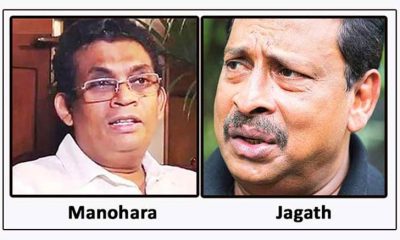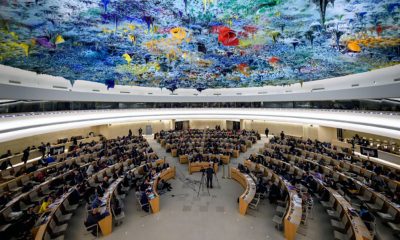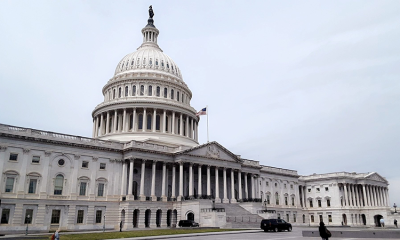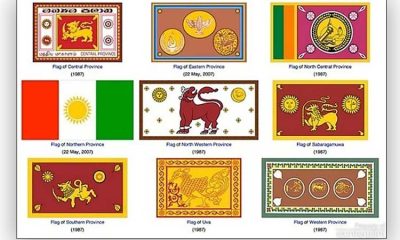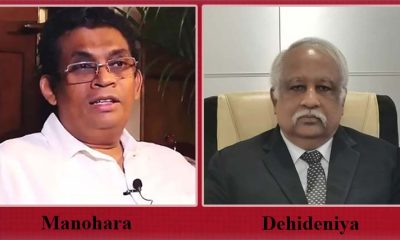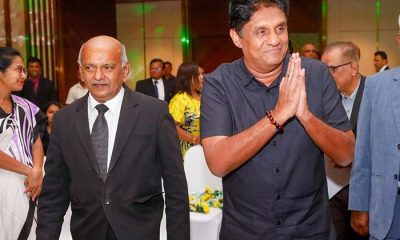News
Manohara makes strong case for draft Constitution, responds to criticism

By Shamindra Ferdinando
President’s Counsel Manohara de Silva has strongly defended the retaining of the controversial 13th Amendment introduced at the behest of India in the new draft Constitution formulated by a 9-member committee appointed by former President Gotabaya Rajapaksa.
Manohara, one of the members of the committee headed by Romesh de Silva, PC, emphasised that the controversial Amendment enacted in the wake of the Indo-Lanka Accord signed in July 1987 had been diluted by the draft Constitution therefore Provincial Council system no longer posed a threat to the country’s unitary status.
An outspoken critic of foreign intervention, Manohara said so at a symposium organized by the Buddhasasana Karyasadaka Mandalaya at Sri Lanka Foundation (SLF) recently.
The constitutional expert challenged those skeptical of the draft Constitution to prove the committee wrong. The lawyer appreciated the Buddhist grouping taking the lead in educating the public on the proposed Constitution in the absence of the Wickremesinghe-Rajapaksa government taking any interest in the ex-President’s project.
However, on behalf of the Coalition Against Partition of Sri Lanka, its Convener retired Lt. Gen. Jagath Dias sought an explanation from the committee regarding the representations made by the Tamil National Alliance (TNA), one-time LTTE ally, pertaining to new constitutional proposals.
The Gajaba Regiment veteran also asked whether the discourse on the draft Constitution initiated on Oct. 12 would continue and the availability of an opportunity to make suitable amendments having considered fresh views in that regard.
Lt. Gen. Dias, who has declared that the full implementation of the 13th Amendment would undermine Sri Lanka’s unitary status, stressed the need for wider consultations regarding constitutional amendments.
President’s Counsel Romesh de Silva declined to reveal the submissions made by the TNA delegation, led by its leader R. Sampanthan. De Silva received the backing of four members of his committee, namely Manohara de Silva, Sanjeewa Jayawardena, PC, Samantha Ratwatte, PC and Navin Marapana, PC.
The team leader said that the dialogue between them and the TNA or any other party couldn’t be discussed publicly though necessary amendments could be effected following discussions. The committee explained that their responsibility was to produce a draft Constitution and further actions should be the prerogative of the government in power. The committee acknowledged that since the handing over of the draft Constitution to the then President, nothing has been done. The gathering was told that based on further discussions on the subject matter the process could be advanced in consultation with relevant parties.
Manohara de Silva said that in the absence of the Gotabaya Rajapaksa government and the Wickremesinghe-Rajapaksa government sleeping on it, Buddhasasana Karyasadaka Mandalaya, invited them to educate the public of the initiative. “We are only invitees here. Perhaps, they’ll continue this process,” the top lawyer said.
Ven. Athureliye Rathana, MP, threw his weight behind the effort. The MP monk asserted that the draft Constitution cleverly proposed a way out of a sensitive issue as it involved India and couldn’t be dealt with haphazardly. The monk stressed the need to further improve the section that dealt with waste, corruption and irregularities and closer look at economic policies. The former JHU heavyweight pointed out how Sri Lanka handled the power sector without adhering to tender procedures, thereby causing enormous loss to the national economy.
In his speech, Manohara de Silva responded to criticism directed at their draft Constitution. Declaring that what had been proposed was not the 13th Amendment that was already in the Constitution now, the lawyer said that they opposed it because the Provincial Council exercised more powers than the government.
The crux of the matter is in case Provincial Councils enacted a law in terms of the current Constitution, the Parliament has no say. The 13th Amendment to the Constitution has been enacted at the expense of Parliament, Manohara said, adding that the Supreme Court that was sharply divided on the issue allowed the law to be passed on the basis the Parliament with a two-thirds majority could do away with it.
Therefore, the 13th Amendment diluted the power of Parliament, the lawyer said, declaring that draft Constitution proposed that though the Provincial Councils could enact laws relevant, Parliamentary laws wouldn’t be undermined by them. De Silva explained that the 13th Amendment compelled the Governors of the Provinces appointed by the President to work in consultation with the provincial ministers. Alleging it dented the executive authority pertaining to what he called provincial subjects, Manohara said that they proposed measures to be taken against in case Provincial Councils resorted to wrong executive decisions.
Perhaps one of the most significant proposals was to do away with elections to the Provincial Councils, the lawyer said, explaining how the required number of PC members could be elected at the Local Government polls, thereby saving quite a considerable amount of funds. Manohara de Silva stressed that what was proposed by them were not the PCs established under the current law.
“Some asked why the whole thing was not scrapped altogether. We discussed this matter. We could have formulated the draft constitution without the relevant section on Provincial Councils,” he said, referring to various constitution making attempts with the focus on the project undertaken by M.A. Sumanthiran, MP, and the then UNP National List Member Dr. Jayampathy Wickremaratne during the Yahapalana administration.
Warning the audience of the threat posed by President Ranil Wickremesinghe’s declaration that he intended to build on the Yahapalana constitutional project, De Silva said that political parties represented in Parliament, and outside, wanted the PC system to continue. Those who had appeared before the committee sought the continuation of the PCs as they wanted their offspring and henchmen to use them as launching pads for parliamentary careers. Therefore, the only option available was to dilute the PCs as the Parliament wouldn’t allow abolition of PCs, the lawmaker said, declaring no government would do so. An irate de Silva said that those represented in Parliament wanted the expansion and strengthening of the system.
Manohara said that members of the nine-member committee could have produced nine different drafts. But, they decided to sink whatever the differences to produce one document that took into consideration views expressed by political parties represented in Parliament and outside.
News
Law will be enforced against all those who acquire assets illegally- State Minister Chathuranga Abeysinghe

State Minister of Industries and Entrepreneurship, Chathuranga Abeysinghe, while addressing a public gathering held at the Raffles Hotel in Kotte on Tuesday [April 22] said that the law will be enforced against all those who acquire assets illegally.
He said that , if someone joins a municipal council receiving a modest salary and, within two to three years, builds a luxury house and acquires a vehicle, we will question how such wealth was amassed. If a satisfactory explanation cannot be provided, the law will be enforced and the measures will be taken to confiscate any illegally acquired assets.
The opposition frequently levels accusations against us, but we have not engaged in any wrongdoing. We have not misappropriated public funds, used undue influence to secure school admissions for our children, or interfered with law enforcement. We are dedicated to serving the people by upholding an ethical and responsible political culture.
If you wish to develop your community, I respectfully urge you to elect individuals of integrity who will not misuse public funds.
[Prime Minister’s Media Division]
Latest News
Unrest at Matara prison brought under control
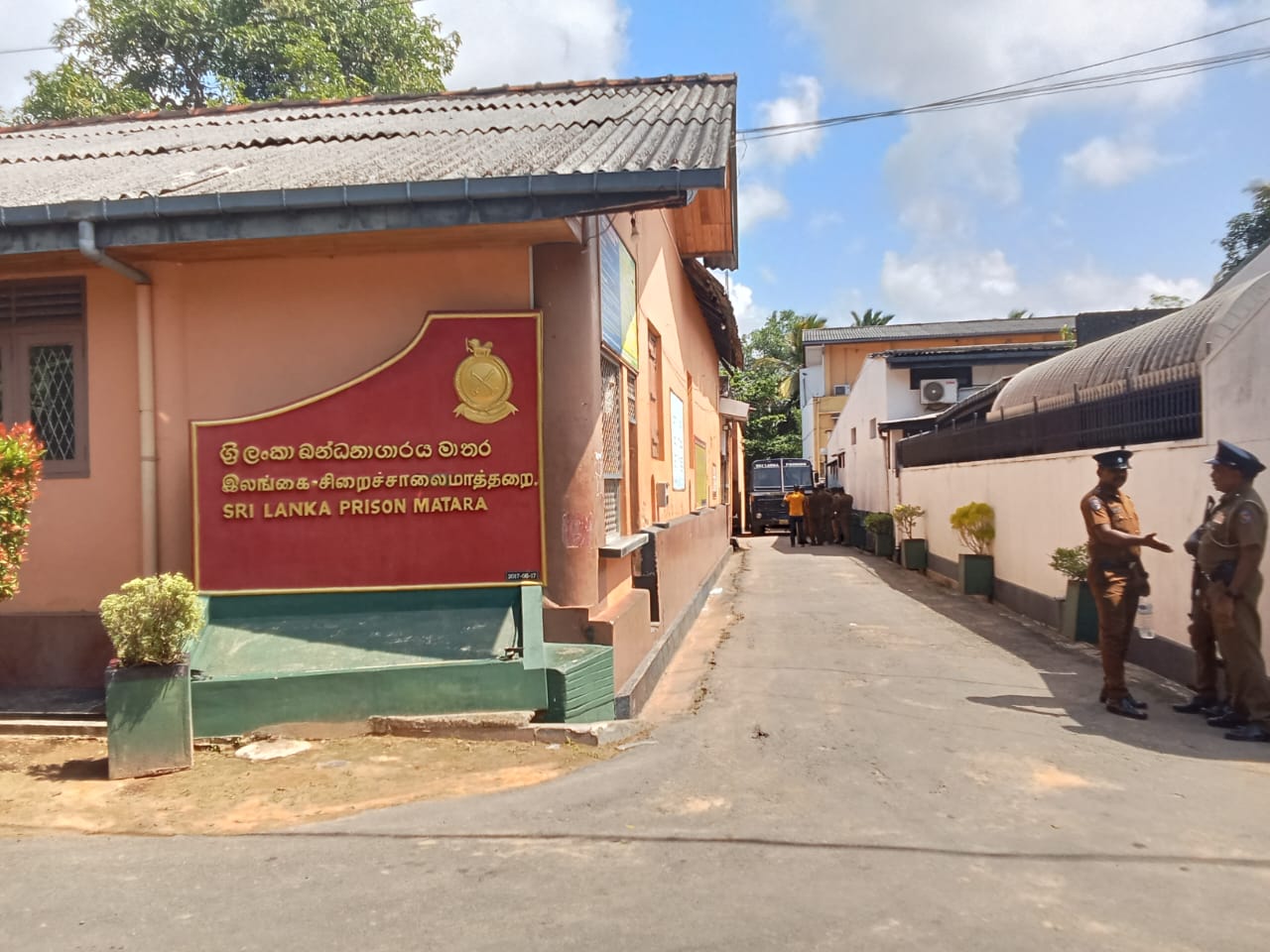
It has been reported that prison officials and the police have brought the unrest among the 500 plus inmates of the Matara prison which commenced on Tuesday [22] under control by this morning (23)
It has been reported that the inmates had broken out of their wards after which the officials were compelled to fire in the air and use tear gas to bring the situation under control.
The inmates are being temporarily transferred to the Angunkolapelessa prison in groups to enable authorities to repair the the damage caused to the wards and cells within the premises.
The prison officials who were injured during the conflict are receiving treatment at the Matara hospital. 


Latest News
Local government authorities and Municipal Councils are the nursery of corrupt politics. – Prime Minister

The Prime Minister stated that the President has challenged all ministers to transparently and efficiently spend the funds allocated to each ministry through the national budget for the benefit of the people, and that the local governments and municipal councils have historically been the nursery grounds of corrupt politics.
The Prime Minister made these remarks while addressing a public gathering held at the Raffles Hotel in Kotte on Tuesday [April 22].
The Prime Minister further stated:
“All 159 of us in Parliament today did not enter through family or financial influence. We are ordinary citizens just like you and individuals who stand among you. Unlike in the past, our members do not behave disruptively in Parliament. When school children visit, there is no need for the Speaker to request their removal that our parliamentary members conduct themselves with dignity, adherence to the law, and political maturity.
This is the kind of Parliament we have always aspired to have. Today, it is you who has made this transformation possible. For a long time, we have not experienced the advantages of an efficient and properly functioning local government. You now have the opportunity to elect representatives who are truly committed to serving you and improving your local institutions.
The event was attended by Arosh Athapaththu, Sri Jayawardenapura Kotte Municipal Council candidate representing the National People’s Power, along with several other candidates and a large number of local residents.
[Prime Minister’s Media Division]
-

 Business4 days ago
Business4 days agoDIMO pioneers major fleet expansion with Tata SIGNA Prime Movers for ILM
-

 News3 days ago
News3 days agoFamily discovers rare species thought to be extinct for over a century in home garden
-

 Features6 days ago
Features6 days agoNipping the two leaves and the bud
-

 Features5 days ago
Features5 days agoProf. Lal Tennekoon: An illustrious but utterly unpretentious and much -loved academic
-

 Features6 days ago
Features6 days agoAvurudu celebrations … galore
-

 Foreign News4 days ago
Foreign News4 days agoChina races robots against humans in Beijing half marathon
-

 News6 days ago
News6 days agoCounsel for Pilleyan alleges govt. bid to force confession
-

 Editorial4 days ago
Editorial4 days agoSelective use of PTA



